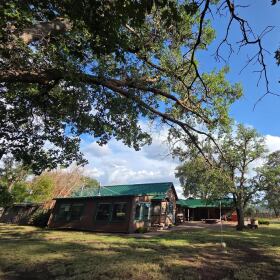
Earth Notes
Every Wednesday
Earth Notes, KNAU’s weekly environmental series, explores the Colorado Plateau by telling stories of the intricate relationships between environmental issues and our daily lives. Rooted in science and wrapped in human interest, the two-minute-long segments encourage listeners to think of themselves as part of the solution to environmental problems.
Latest Episodes
-
Hat Ranch near Williams, Arizona has a layered history of conservation and public life.
-
Fremont cottonwoods form a ribbon of green along Arizona’s rivers and streams. They have heart-shaped leaves which turn golden in fall and fluffy, cotton-like seeds.
-
Route 66 is known for roadside history, but the landscape also holds older signs of passage and human movement.
-
Artificial light including flames have been known to attract moths and many other flying insects at night for centuries. Earliest written records of the behavior date back to the Roman Empire.
-
If you look toward the eastern horizon just before dawn on a clear, moonless night, you should see a ghostly white glow shining up through the dark sky.
-
Coyotes and badgers are well-known predators of the American wilderness. What is not well known is that these two species, normally competing for the same prey, sometimes become hunting partners.
-
Saguaro survival is now being challenged at all elevations by climate change.
-
Ancestral Puebloan peoples developed ingenious methods to collect, store, conserve, and utilize water.
-
The marvels of the Grand Canyon extend beyond its dramatic scenery. Underground, vast cave systems hold clues to the region’s future climate.
-
Ancestral Pueblo people began making turkey feather blankets about 1,800 years ago, coinciding with the transition to settled agricultural life.











